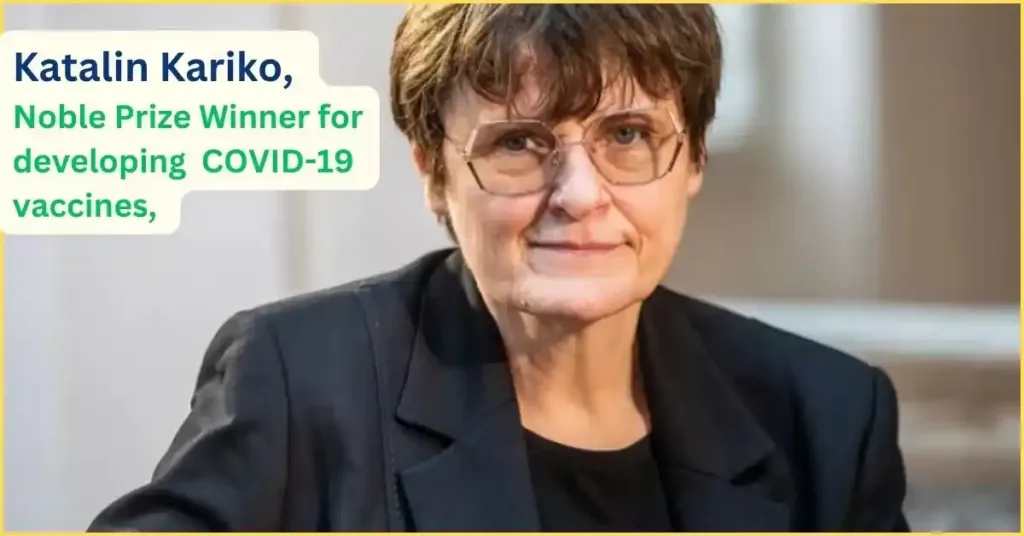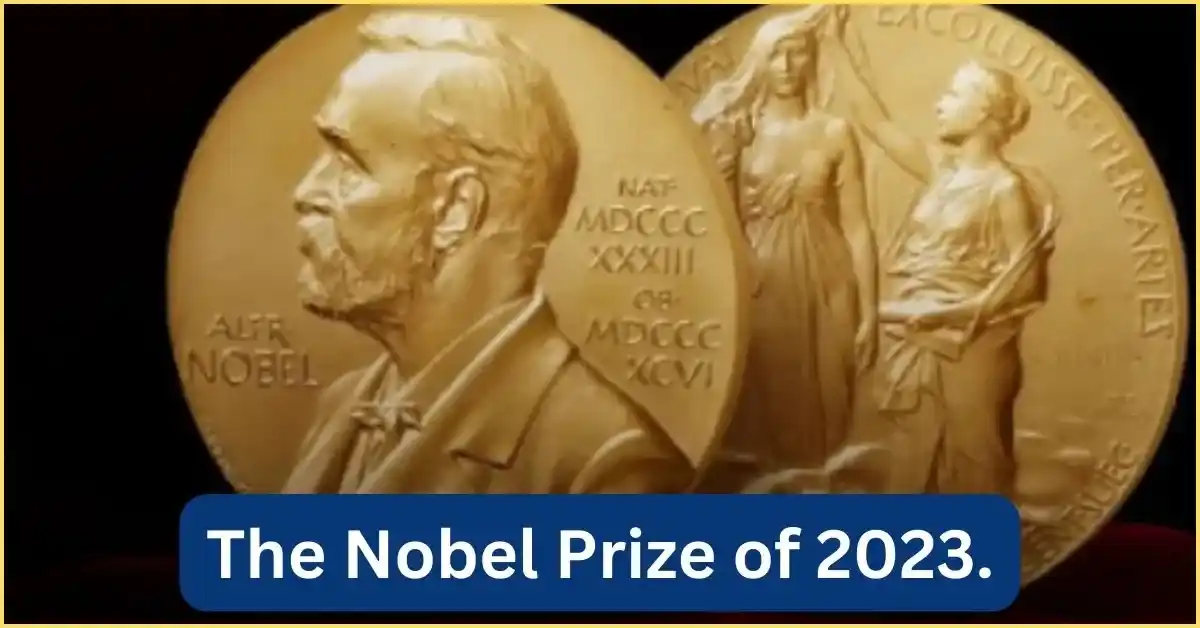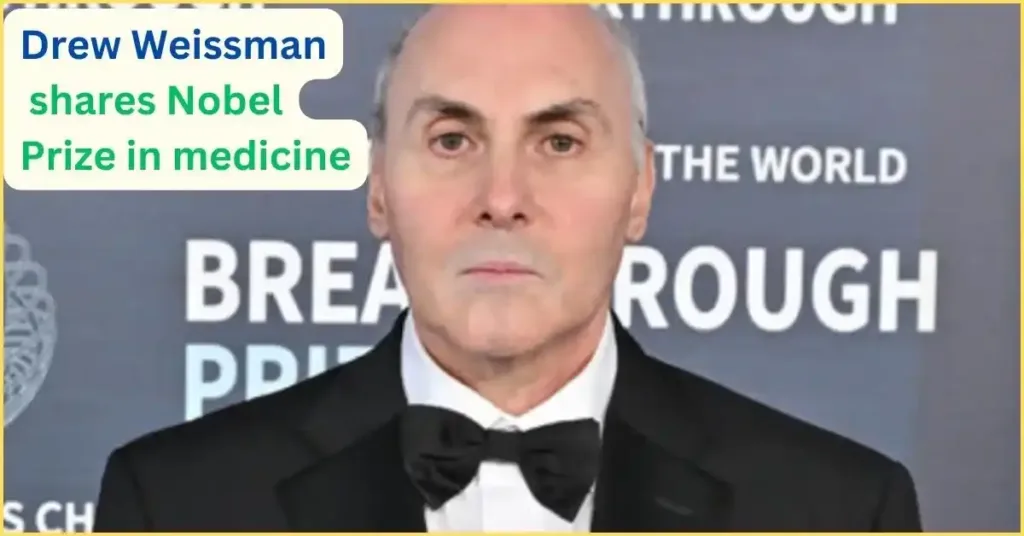Nobel Prize 2023 in Physiology or Medicine: Celebrating the mRNA Pioneers Who Saved Millions of Lives
Katalin Karikó and Drew Weissman, the two scientists who won the 2023 Nobel Prize in Physiology or Medicine for their pioneering work on mRNA vaccine development, have saved millions of lives. Their groundbreaking discoveries have revolutionized the field of medicine and have helped us to turn the tide of the COVID-19 pandemic.
Imagine a world without COVID-19 vaccines. It’s a scary thought, isn’t it? But thanks to the pioneering work of two scientists, Katalin Karikó and Drew Weissman, we live in a world where these life-saving vaccines are a reality.
Karikó and Weissman were recently awarded the 2023 Nobel Prize in Physiology or Medicine for their groundbreaking discoveries in nucleoside base modifications. These discoveries have played a crucial role in the development of effective mRNA vaccines against COVID-19, revolutionizing the fight against the pandemic.
Meet the Nobel Prize Laureates
Karikó is a Hungarian-born biochemist who has spent decades studying the therapeutic potential of mRNA. Weissman is an American immunologist whose research focuses on developing new vaccines and immunotherapies.
The two scientists began collaborating in the early 2000s, and their work together has led to several major breakthroughs in the field of mRNA vaccine development. One of their most important discoveries was that modifying the nucleoside bases in mRNA could make it less likely to trigger an inflammatory response from the immune system. This discovery was essential for the development of safe and effective mRNA vaccines.
The Award and Its Significance Nobel Prize2023
The Nobel Prize in Physiology or Medicine is one of the most prestigious awards in the world. It is given each year to scientists who have made groundbreaking discoveries that have had a significant impact on human health.
Karikó and Weissman’s award is a testament to the importance of their work. Their discoveries have revolutionized the field of vaccine development and have saved millions of lives.
Unraveling the Impactful Discoveries
mRNA vaccines are a new type of vaccine that work by delivering messenger RNA (mRNA) into the body. mRNA is a molecule that contains instructions for making proteins. When mRNA is delivered into cells, the cells translate the mRNA instructions into proteins.
In the case of COVID-19 vaccines, the mRNA instructions code for the spike protein, which is the protein that the SARS-CoV-2 virus uses to infect cells. When the body produces the spike protein, the immune system learns to recognize it and attack it. This means that if the body is ever exposed to the SARS-CoV-2 virus, the immune system will be able to quickly and effectively fight it off.
Karikó and Weissman’s work on nucleoside base modifications has made it possible to develop mRNA vaccines that are safe and effective. By modifying the nucleoside bases in mRNA, they were able to make it less likely to trigger an inflammatory response from the immune system. This was essential for the development of mRNA vaccines that could be used in humans.
The Impact on Society
The impact of Karikó and Weissman’s work extends far beyond the realm of scientific discovery. Their breakthroughs paved the way for the rapid development of mRNA vaccines against COVID-19, marking a historic turning point in our battle against the pandemic.
These vaccines have not only saved countless lives but have also provided a glimmer of hope during these challenging times. As of October 2, 2023, over 12 billion doses of COVID-19 vaccines have been administered worldwide, and these vaccines have been credited with preventing millions of deaths.
Biography of Katalin Karikó
The Nobel Prize-Winning Work That Saved the World,

Born in Kisújszállás, Hungary, in 1955, Katalin Karikó embarked on a remarkable journey in the realm of science. She earned her bachelor’s degree in biology in 1978, followed by a doctorate in biochemistry from the University of Szeged, Hungary, in 1982. Karikó’s quest for knowledge took her across the Atlantic to the United States, where she assumed the role of a postdoctoral researcher at the University of Pennsylvania.
In the early 1990s, Karikó delved into the therapeutic potential of messenger RNA (mRNA), a molecule harboring the instructions for protein synthesis. Her vision was to harness mRNA’s power to develop innovative treatments for ailments such as cancer and HIV.
However, mRNA’s use in therapy posed a challenge, as it could incite an immune system response, potentially leading to inflammation. Undeterred, Karikó explored modifying the nucleoside bases within mRNA, an ingenious move that rendered it less likely to trigger an inflammatory reaction. This breakthrough proved pivotal for the subsequent development of safe and effective mRNA vaccines.
In the early 2000s, Karikó joined forces with Drew Weissman, an esteemed immunologist at the University of Pennsylvania. Together, they embarked on a journey marked by significant milestones in the domain of mRNA vaccine development. Their groundbreaking work in 2005 showcased the capability of mRNA vaccines to trigger targeted immune responses against specific antigens.
The indomitable spirit of Katalin Karikó, combined with her collaboration with Drew Weissman, laid the very foundation for the mRNA vaccines that are currently spearheading the fight against the COVID-19 pandemic. This pioneering work culminated in the awarding of the Nobel Prize in Physiology or Medicine in 2023, solidifying their legacy as trailblazers in the field.
Barry Sharpless
The Nobel Prize-Winning Work That Saved the World,
Barry Sharpless is an American chemist who has won the Nobel Prize in Chemistry twice, in 2001 and 2022. He is the only living person to have won the Nobel Prize in Chemistry twice.
Sharpless was born in Philadelphia, Pennsylvania, in 1941. He received his bachelor’s degree in chemistry from Dartmouth College in 1963 and his doctorate in chemistry from Stanford University in 1968. After completing his doctorate, Sharpless worked as a postdoctoral researcher at Harvard University and the Massachusetts Institute of Technology (MIT).
In 1970, Sharpless joined the faculty of MIT. He remained at MIT until 1990, when he joined the faculty of Stanford University. In 1992, Sharpless moved to the Scripps Research Institute in La Jolla, California, where he is currently a professor.
Sharpless is known for his work on stereoselective reactions and click chemistry. Stereoselective reactions are reactions that produce products with a specific stereochemistry. Click chemistry is a type of chemical reaction that is characterized by its high efficiency and selectivity.
Sharpless’s work on stereoselective reactions has had a major impact on the field of organic chemistry. His work has led to the development of new methods for synthesizing complex molecules with high selectivity. This has made it possible to produce new drugs and other chemicals that would not be possible to produce using traditional methods.
Sharpless’s work on click chemistry has also had a major impact on the field of chemistry. Click chemistry has been used to develop new materials, new methods for drug discovery, and new methods for imaging biological molecules.
Sharpless is a highly respected chemist and has received numerous awards for his work. In addition to winning the Nobel Prize in Chemistry twice, he has also received the Wolf Prize in Chemistry, the Priestley Medal, and the National Medal of Science.
Sharpless is a brilliant chemist who has made significant contributions to the field of chemistry. His work has had a major impact on the development of new drugs, new materials, and new methods for drug discovery and imaging.
Biography of Drew Weissman
Noel Prize
Drew Weissman, hailing from Boston, Massachusetts, was born in 1954. His academic journey commenced with a bachelor’s degree in biology from the University of Massachusetts Amherst, successfully obtained in 1976. Following this accomplishment, Weissman embarked on a research career, serving as a research technician at the Massachusetts Institute of Technology (MIT).
In 1980, Weissman embarked on a doctoral pursuit in immunology at the University of Pennsylvania. After earning his PhD, Weissman transitioned into a faculty role at the same institution.
Parallel to his academic career, Drew Weissman ventured into a collaborative effort with Katalin Karikó to explore the potential of mRNA vaccines. Their collaboration yielded several pivotal advancements in the realm of mRNA vaccine development. Notably, in 2005, they demonstrated the ability of mRNA vaccines to incite targeted immune responses against specific antigens.
Weissman, an esteemed figure in immunology and virology, also made his mark as an entrepreneur. In 2009, he co-founded Moderna, a prominent developer of mRNA vaccines.
The collective efforts of Drew Weissman and Katalin Karikó stand as a testament to their invaluable contributions to science and medicine. Their pioneering work in mRNA vaccine development has revolutionized healthcare, ultimately saving millions of lives.
Conclusion
Katalin Karikó and Drew Weissman are true pioneers. Their work on mRNA vaccine development has revolutionized the field of medicine and has saved millions of lives. They are an inspiration to us all, and their Nobel Prize is a well-deserved recognition of their groundbreaking achievements.
Can you imagine a world without COVID-19 vaccines? It’s a scary thought, isn’t it? But thanks to the two scientists who won the 2023 Nobel Prize in Physiology or Medicine, Katalin Karikó and Drew Weissman, we live in a world where these life-saving vaccines are a reality.
Karikó and Weissman spent decades studying mRNA, a molecule that contains instructions for making proteins. They figured out that by modifying the nucleoside bases in mRNA, they could make it less likely to trigger an inflammatory response from the immune system. This was a game-changer for mRNA vaccine development.
Thanks to their work, we now have mRNA vaccines that are safe and effective against COVID-19. These vaccines have saved millions of lives and have helped us to turn the tide of the pandemic.
Karikó and Weissman are true heroes. Their dedication to science and their innovative work have made the world a better place. They deserve all the praise they can get
[saswp_tiny_multiple_faq headline-0=”h2″ question-0=”When will the Nobel Prizes be announced in 2023?” answer-0=”The Nobel Prizes will be announced on October 2-9, 2023. ” image-0=”” headline-1=”h2″ question-1=”What are the Nobel Prizes?” answer-1=”The Nobel Prizes are international awards that are given annually to individuals and organizations who have made outstanding contributions in physics, chemistry, physiology or medicine, literature, peace, and economics. ” image-1=”” headline-2=”h2″ question-2=”Who can nominate someone for a Nobel Prize?” answer-2=”Anyone can nominate someone for a Nobel Prize, but the nominations must be submitted by a qualified body, such as a university, academy, or government institution. ” image-2=”” headline-3=”h2″ question-3=”How are the Nobel Prizes awarded?” answer-3=”The Nobel Prizes are awarded by the Nobel Committees, which are independent bodies that are appointed by the Nobel Foundation. The Nobel Committees evaluate the nominations and select the winners. ” image-3=”” headline-4=”h2″ question-4=”How much money does a Nobel Prize winner receive?” answer-4=”The Nobel Prize winners receive a monetary award of 10 million Swedish krona (approximately $1.1 million USD). ” image-4=”” headline-5=”h2″ question-5=”Can a Nobel Prize be revoked?” answer-5=”Yes, a Nobel Prize can be revoked if it is discovered that the winner has engaged in serious misconduct. However, this has only happened once in Nobel Prize history, when the 1911 Peace Prize was revoked from Henry Cabot Lodge Jr. ” image-5=”” headline-6=”h2″ question-6=”Can a Nobel Prize be awarded posthumously?” answer-6=”Yes, a Nobel Prize can be awarded posthumously if the death occurs before the announcement of the prize. However, the prize cannot be awarded to someone who died more than six months before the Nobel Committees began their work on the prize. ” image-6=”” headline-7=”h2″ question-7=”What is the theme of the Nobel Prize 2023?” answer-7=”The theme of the Nobel Prize 2023 is “Truth, Trust, and Hope.” ” image-7=”” headline-8=”h2″ question-8=”What is the Nobel Peace Prize awarded in? ” answer-8=”Norway” image-8=”” headline-9=”h2″ question-9=”Where does the prize money come from? ” answer-9=”The Nobel Foundation” image-9=”” headline-10=”h2″ question-10=”Why is the Nobel Prize called a “prize”?” answer-10=”Alfred Nobel, the founder of the Nobel Prize, used the Swedish word “pris” to describe the awards. This word can be translated into English as “prize,” “award,” or “honor.”” image-10=”” count=”11″ html=”true”]

